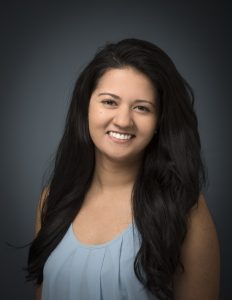Ashley Ahuja is no stranger to leadership; throughout her career she has gravitated towards leadership roles that help her build a stronger connection with other people. During the COVID-19 pandemic, Ahuja was working in the ICU when management, recognizing her strong leadership skills, asked her to take on the role of team lead for Sunnybrook Health Science Centre’s brand new COVID ICU. She has also sat on the board of directors of the Canadian Nursing Students’ Association and acted as chair of the Corporate Nursing Council at Sunnybrook Health Sciences Centre.
Now Ahuja, a Master of Nursing student, has recently been elected as the new president of the Graduate Nurses’ Student Society (GNSS) at the Lawrence Bloomberg Faculty of Nursing.
“I actually wrote on my application to the program that I wanted to get involved in GNSS in a leadership role,” says Ahuja who was previously the Vice-President of the GNSS. “Being involved in this way makes every day a bit better, a bit more engaging, and knowing that I have an opportunity to make meaningful change, motivates me.”
Ahuja says she is passionate about the direction of the nursing profession and the impact of nurses in leadership roles. As the team lead of Sunnybrook’s COVID ICU, Ahuja remembers always looking for ways to make the unit run more cohesively, which was challenging at the best of times given the constantly changing policies, the influx of patients, and having to work within alternate models of care, stretching resources already limited even further.
“Becoming an impeccable communicator was key to leading this unit,” says Ahuja. “Not only were we figuring out bed allocations and where patients would go, but we were also managing a dynamic nursing team every day, with help coming from nursing agencies and elsewhere. We also had to keep on top of changing visitor policies and make sure those were communicated to everyone working on the unit, as well as manage advanced care planning which was often not in place for many of our patients coming from long-term care.”
Having to both work as a registered nurse during the pandemic and be a full-time student is a unique position that Ahuja feels only another graduate nursing student would be able to understand. Throughout much of the past year, she has seen the challenges the pandemic has created for her classmates, and the way their mental health has been impacted, which is why one of her goals as president is to foster a greater sense of community even if it is mostly online.
“As the previous vice president of GNSS, I got a sense of the student voice and as president I want to continue to build those connections and be a voice for the students,” says Ahuja.
Continuing to be a voice for the student body is also something reflected in Ahuja’s commitment to advancing equity, diversity and inclusion initiatives at Bloomberg Nursing. The GNSS has recently published strong statements on anti-Black racism, and seeks to push forward with Indigenous reconciliation in culturally safe ways, but there are also additional populations facing discrimination including the Muslim and Asian communities. Ahuja knows there is much more work to be done to create equitable environments.
“Equity is a central value in the nursing profession. I have been on the Faculty’s EDI Working Group, and while that’s a start I hope to continue my work towards addressing these issues as a member of the EDI Committee,” says Ahuja.
Nursing is something that Ahuja truly loves to do. As she completes her Master of Nursing, Nurse Practitioner program she is hoping to advance system changes particularly for older adult populations, as she has seen first-hand how the pandemic has exposed weaknesses in the health care system.
“Part of what inspires me is a nurse’s ability to lead change that impacts people’s lives,” says Ahuja. “If I can advance the nursing profession and improve the health care system for older adults, that will be a huge success.”
